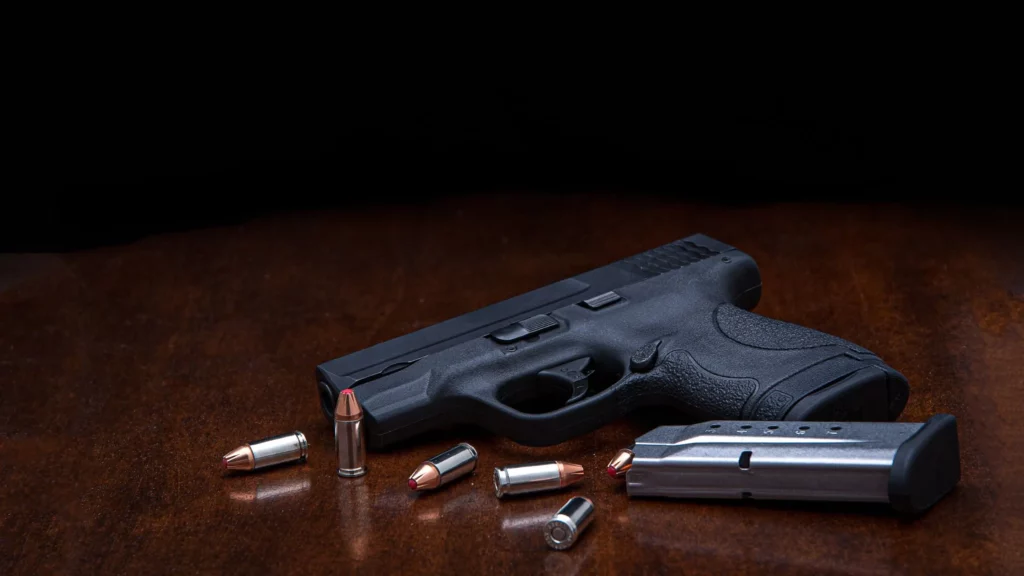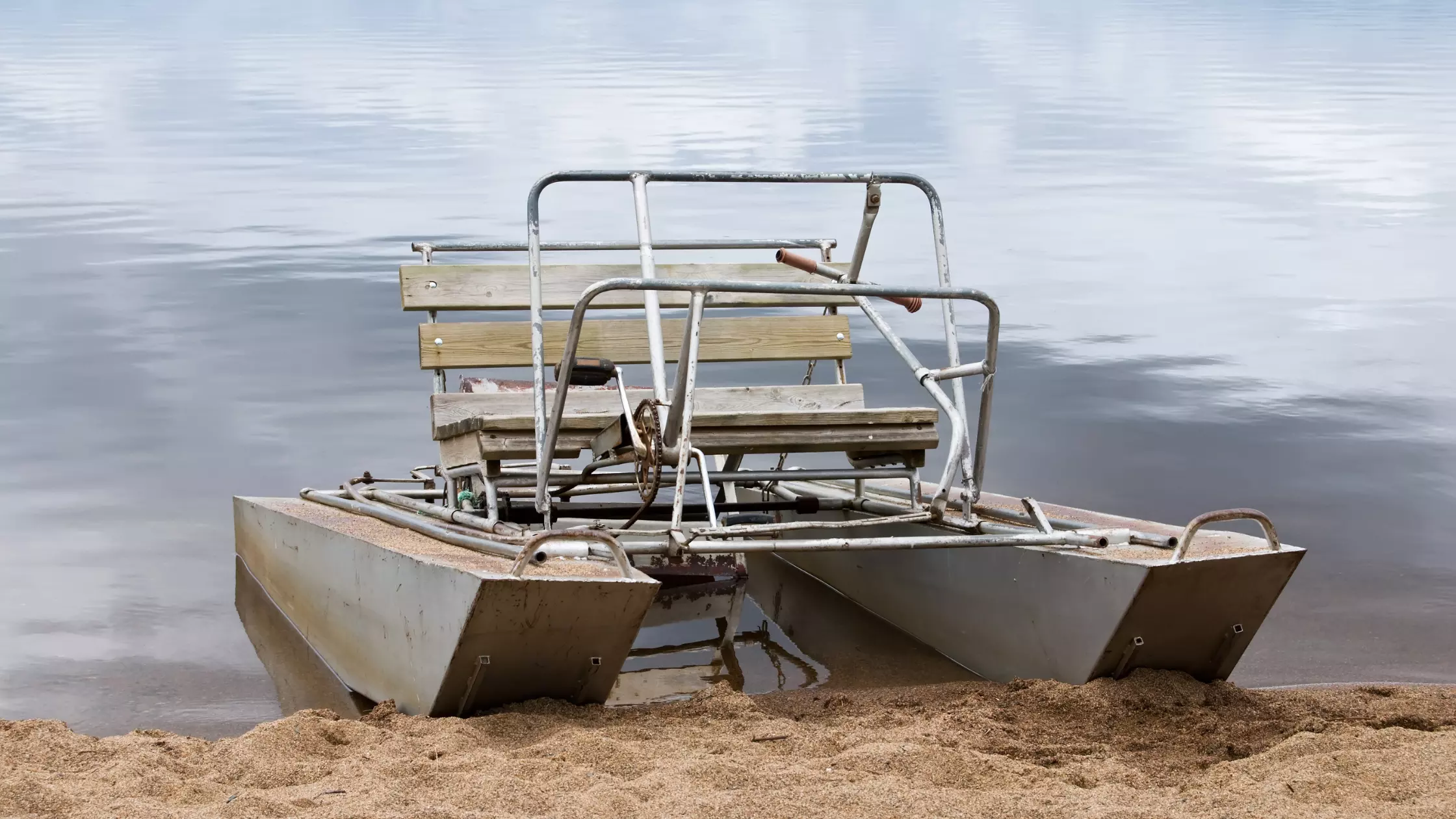How Should Firearms Be Transported In A Boat?
The same rules that apply when transporting weapons in a car still apply: unload and case firearms before getting on or off the boat.
Read Also Beam Of Boat
The Three Goals of Proper Firearm Safe Transportation

Moving forward, we should understand why you would want to ensure proper transportation on a boat. Here are three major reasons for this:
The first thought that most of our readers will have is that firearms should be transported properly in order to avoid accidents. This is a valid reason to be cautious with firearms on board, but it is not the only one.
Children on board will probably want to play with your firearms if you do have any. Apart from that, you should not give intruders or anyone else on the boat access to your firearms.
If you do not properly store your many firearms and correct ammunition topic, you may be unable to use it when needed.
These three points will serve as the foundation for our tips on proper gun transportation. To provide a more complete picture, we will discuss the transportation of both guns and ammunition.
How Should Firearms Be Transported In A Boat?

Each firearm will have its own “clearing” procedure for fully unloading it for safe storage. If you own a firearm, you should know how to clear it safely. You should not own a gun if you do not know how to use it.
That being said, if you’ve recently purchased a firearm and don’t know how to clear it safely, here’s how it’s typically done:
But Wouldn’t It Be Safer For Me To Keep My Gun Loaded?
If you’re carrying a firearm in case of an emergency, it may occur to you that transporting firearms loaded guns is preferable.
Perhaps, but even in the military, guns are NEVER stored loaded. To avoid accidents, all firearms are unloaded before storage.
Although unintentional discharge from shock or impact is extremely rare in firearms, it can occur. Besides that, if someone, particularly a child, obtains your gun, they may accidentally fire it.

Should You Take Your Gun Apart for Storage?
You should prepare your gun for storage once it is completely unloaded.
Gun safes are more secure than gun cases because they are much more difficult to open. However, you are unlikely to find a gun safe that is both water- and dust-proof, so for the best results, combine a good gun safe with a good gun case.
Furthermore, in an emergency, you will have to spend more time opening your gun safe and removing the gun.
Some people prefer to disassemble their firearms before storing them. What you expect from your journey will determine whether or not you should do this.
If you are afraid of being attacked by pirates, you should not disassemble your gun. You should reduce the number of steps required to basic shooting skills a gun in an emergency, while keeping your gun unloaded and be careful other safety considerations
You may disassemble your firearm if you do not intend to use it during the journey. Disassembling is beneficial for storage efficiency and, arguably, adds an extra layer of safety. If there are no live rounds in your gun, it will not fire, assembled or disassembled.

Where should you put your gun once it’s in its dedicated case? Here are a few pointers:
All of your passengers should be seated behind the firearm.
If you own transporting multiple firearms, you have two choices:
If you are going to use a gun safe, keep it in a cabinet or cupboard where it will be out of sight but still easily accessible when needed.
What About Ammo?
Current online guides overlook one critical aspect of firearm transportation: ammunition. You’re probably bringing a firearm and ammunition with you; without the other, they’re useless.
Ammo should be stored properly because it can quickly deteriorate. Ammo should be stored in the following locations:
Ideally, you should keep your ammunition in the original packaging.
Arguably, properly storing ammo is more important than properly storing firearms. A gun cannot shoot without ammo, but ammo can theoretically shoot spontaneously without a gun.
Having said that, even if ammo does explode, it is extremely unlikely to injure you. When you pull the trigger on your gun and ignite the powder propellant, the expanding gas pushes the bullet through the barrel.
Gas exerts a significant amount of force on the bullet within the limited space of the barrel, significantly accelerating it. However, outside of a barrel, the effect of the gas on the bullet is diminished.
Furthermore, the primer at the back of the bullet must be struck at a right angle for a round to spontaneously fire.
Keeping this in mind, guns are safe when unloaded the boat , and ammo has an extremely low chance of exploding and injuring someone. So, when it comes to firearm transportation
Can You Carry a Gun on a Boat? Multiple Guns On Firearms In A Boat

We should also discuss the legal implications of carrying guns on a boat. The hunting laws differ depending on whether you are in US waters, international waters, or another country’s waters.
In summary, here’s what you need to know about firearms on boats:
How Should Firearms be Transported in a Boat – Conclusion

As long as you know what you’re doing, there’s nothing wrong with bringing a firearm on a fishing trip with basic hunting skills.
If driving the guns isn’t an option, or if you want to hunt from the watercraft, you can keep them on board. Simply clear and disassemble the weapons ahead of time, and keep them pointed away from the passengers at all times.
As a result, the answer to the question “how should firearms be transported in a boat?” is unloaded, with the safety safely carrying firearms, in a gun case or safe, and with the ammunition in a separate location.
Whatever your reason for bringing firearms on board, make sure to be responsible and follow gun safety procedures.








